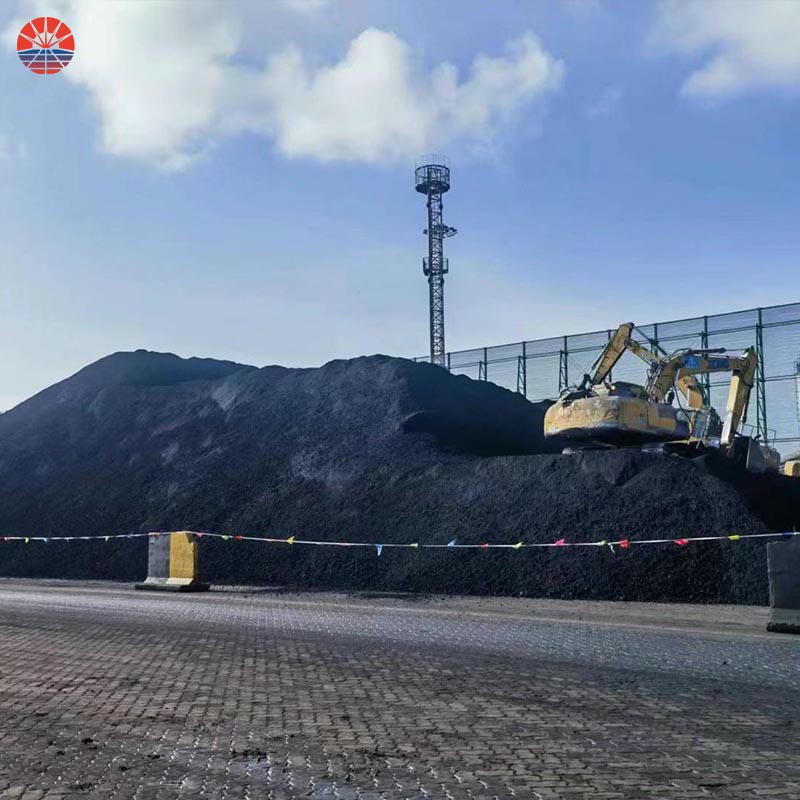Raw Petroleum Coke Manufacturers
The use of petroleum coke (petcoke) in cement plants can offer several benefits, particularly when compared to other fuel sources. Here are some of the advantages of using petcoke in cement manufacturing:
High Calorific Value: Petcoke has a high calorific value, meaning it contains a significant amount of energy per unit mass. This high energy content makes it an efficient and effective fuel source for cement kilns, providing the heat necessary for the clinkerization process.
Cost-Effectiveness: Petcoke is often cheaper than other fossil fuels used in cement plants, such as coal or natural gas. Its relative affordability can result in cost savings for cement manufacturers, contributing to improved economic efficiency.
Stable Supply: As a byproduct of the oil refining process, petcoke production is relatively stable and reliable. Cement plants can benefit from a consistent supply of petcoke as a fuel source.
High Carbon Content: The carbon content in petcoke can help reduce the need for additional carbonaceous materials in cement kilns. This is particularly advantageous in regions where alternative fuels like biomass or waste-derived fuels may have limited availability or higher costs.
Lower Sulfur Content: Compared to some other fuels, petcoke typically has lower sulfur content. Using petcoke as a fuel source in cement plants can help reduce sulfur dioxide (SO2) emissions, contributing to improved air quality and reduced environmental impact.
Reduced Emissions: The combustion of petcoke in cement kilns can result in lower emissions of greenhouse gases and other pollutants compared to certain other fossil fuels, such as coal.
Energy Recovery: Cement kilns can utilize the waste heat generated from petcoke combustion for various purposes, such as preheating raw materials or generating electricity through a waste heat recovery system.
While petcoke offers these advantages, it is essential to consider the potential environmental and health implications associated with its use, such as greenhouse gas emissions and air pollutants. The cement industry, like other sectors, is increasingly exploring sustainable and eco-friendly practices, including the use of alternative fuels and energy-efficient technologies, to reduce its environmental footprint. Additionally, regulations and environmental standards may impose restrictions on the usage of petcoke in cement plants to mitigate its potential adverse effects.
The role of using petroleum coke in cement plants
The primary role of using petroleum coke (petcoke) in cement plants is as a fuel source. Petcoke is used as a supplementary fuel in cement kilns to provide the high heat necessary for the cement manufacturing process. Here's how petcoke serves this purpose in cement plants:
High Calorific Value: Petcoke has a high calorific value, meaning it contains a significant amount of energy per unit mass. When burned, petcoke releases a large amount of heat, making it suitable for providing the high temperatures required in cement kilns.
Cost-Effective Energy Source: Petcoke is often more cost-effective than traditional fossil fuels like coal or natural gas. Its availability and relatively lower cost can help cement plants reduce their energy costs and improve the overall economic viability of cement production.
Stable Supply: Petcoke is a byproduct of the petroleum refining process, ensuring a stable and consistent supply for cement plants that choose to use it as a fuel source.
Improved Kiln Performance: The high heat content and combustion characteristics of petcoke can result in better kiln performance, increased clinker production, and improved energy efficiency in cement plants.
Lower Sulfur Content: Compared to some coal types, petcoke typically has lower sulfur content. Using petcoke can help reduce sulfur dioxide (SO2) emissions, which are a major cause of air pollution and acid rain.
Reducing Carbon Footprint: While petcoke does emit carbon dioxide (CO2) when burned, its lower carbon content compared to some coals can lead to reduced carbon emissions per unit of energy produced. This can contribute to the cement industry's efforts to reduce its carbon footprint.
It's important to note that the use of petcoke in cement plants can also have environmental and health implications due to its high carbon content and potential emissions of greenhouse gases and other pollutants. The combustion of petcoke can release pollutants such as nitrogen oxides (NOx) and particulate matter, which can affect air quality and human health. Therefore, cement plants that use petcoke are subject to regulatory scrutiny and may need to meet emission standards to address these concerns.
In recent years, there has been a growing interest in using alternative fuels derived from biomass or waste materials in cement plants. These cleaner energy sources can help further reduce the environmental impact of cement production and contribute to more sustainable practices in the cement industry.













